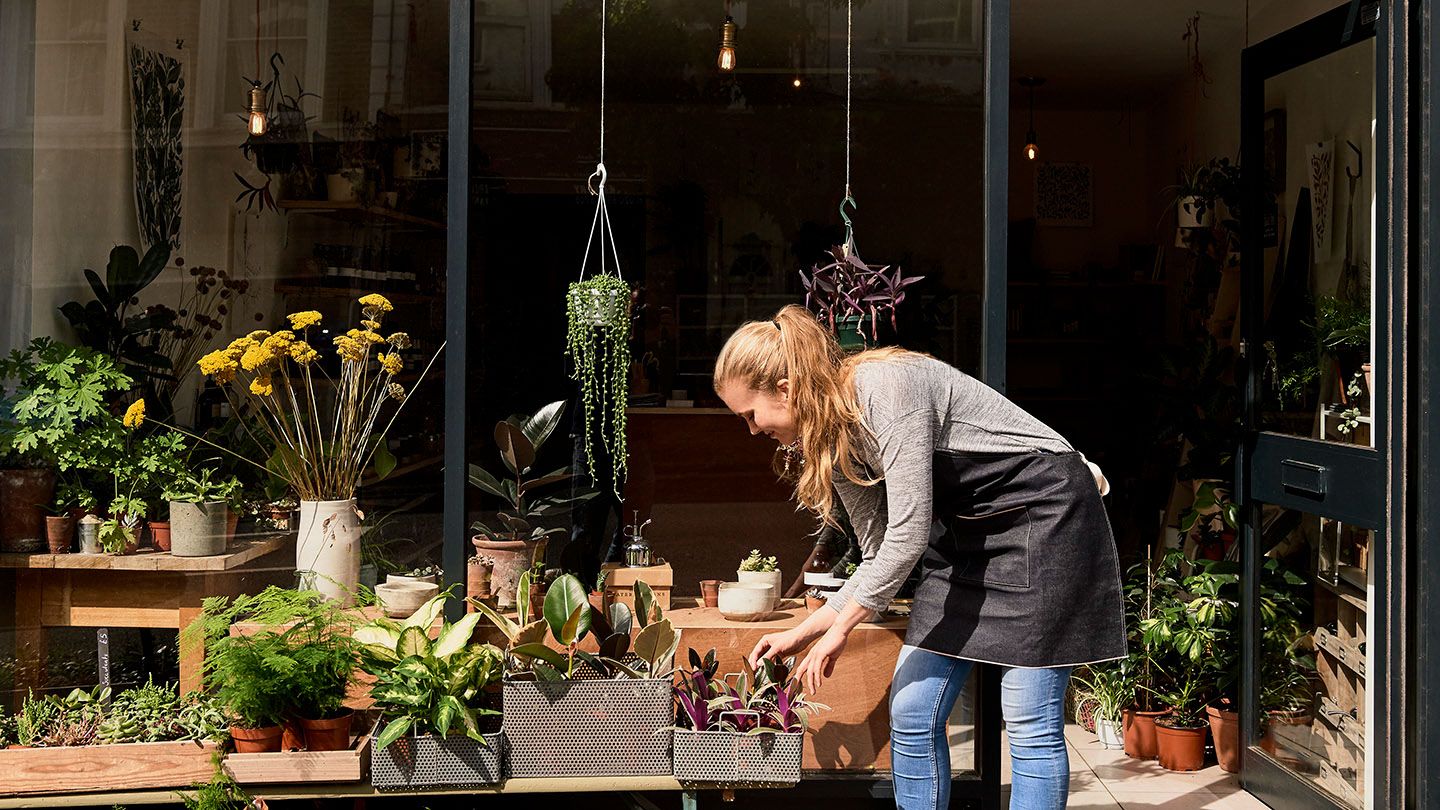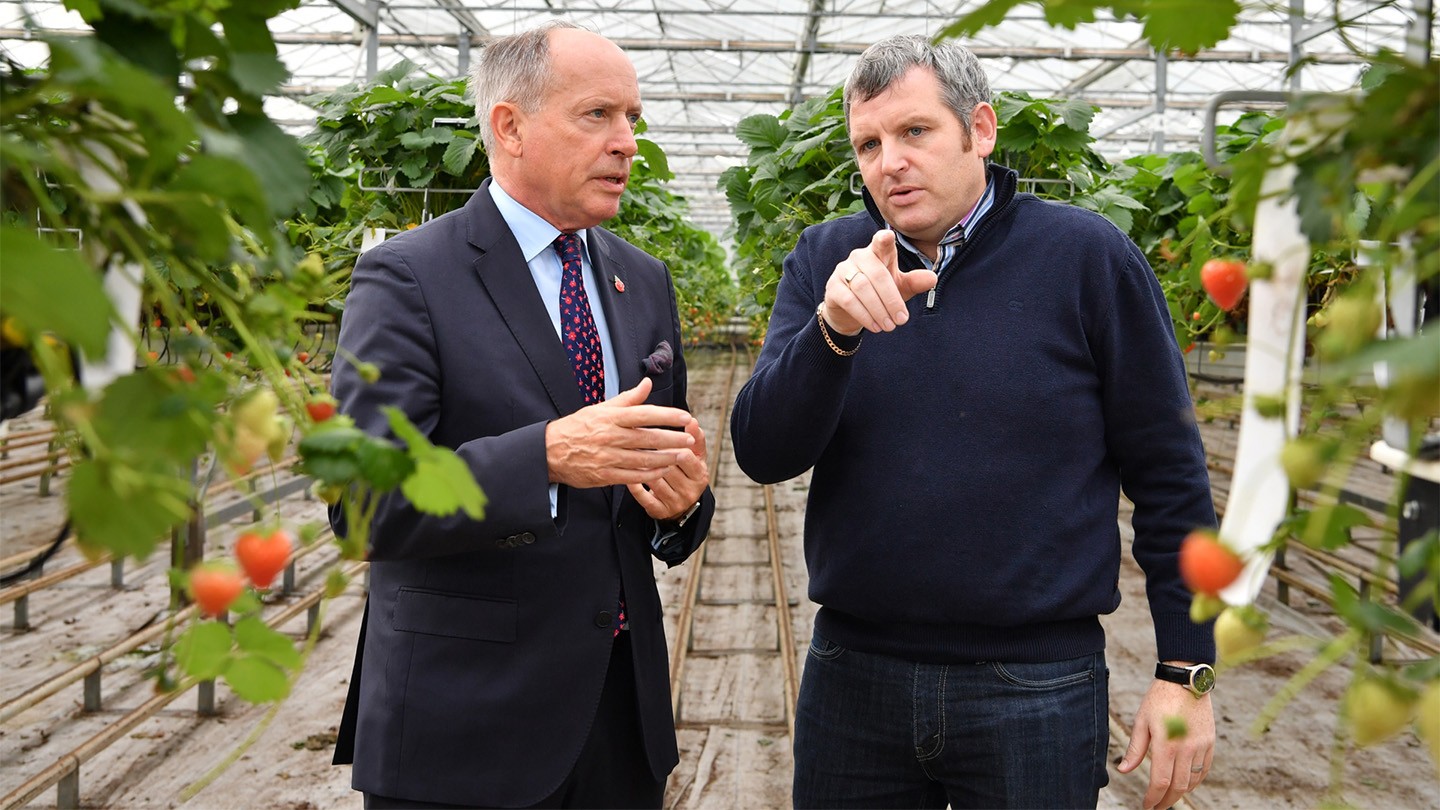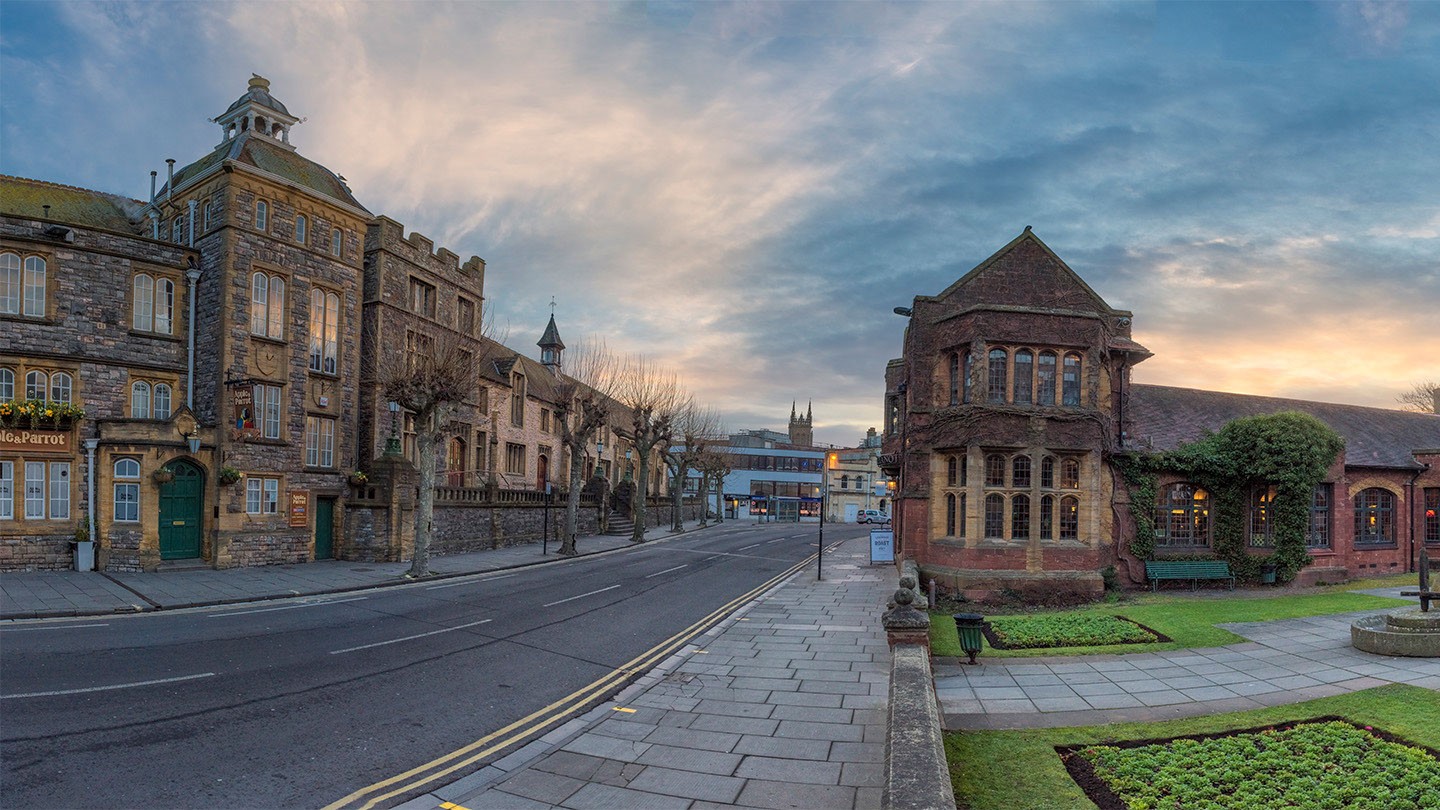
Impact
Helping local communities bounce back and thrive
Flexibility, speed of movement and developing the right skills will be vital for local businesses post-pandemic. Former Barclays UK Chairman Sir Ian Cheshire, who launched the scheme, explains how the bank’s tailored local economic growth programme – Thriving Local Economies – gives communities the tools to adapt to the future of business.
“What we’re interested in is how we can get closer to the coalface and help businesses,” Sir Ian Cheshire, former Chairman of Barclays UK, said, addressing the Future of Business seminar organised by the Somerset Chamber of Commerce.
The topic and location were close to Cheshire’s heart, as he recalled the launch and development of Barclays’ Thriving Local Economies (TLE) pilot in Taunton Deane, Somerset, in November 2019. “I had the joy of being down in Taunton Deane to launch the project, to help people comprehend that each local economy is different and help Barclays understand how to use the right support in the right places – and use lessons learnt from the area to scale up a national effort based on local understanding,” he said.
The launch was the beginning of a commitment to understand varied regions of the UK through a mixture of primary research and analysis, along with access to skills, training, mentoring, business growth strategies and traditional banking support.
Staying resilient during COVID-19
The pandemic, Cheshire says, has meant “we haven’t been able to do some of the things we’d wanted to do, particularly in the form of local personal interventions, but we’ve remained keen to continue our work and support in the local area. We’ve done a series of virtual workshops and seminars, but we hope to come out of COVID-19 with enhanced local support.”
Barclays LifeSkills programme – which helps develop personal and employability skills – will deliver training to Year 9 pupils in schools across Taunton Deane to help meet the skills needs of local businesses. In addition, a package of business support will be launched with workshops focused on specific issues affecting businesses in rural economies, including succession planning, business strategy and adapting to change post-Brexit.
Another tool in the TLE box is research, and with it, greater insights into local economies on the ground. Barclays worked closely with the Chamber of Commerce to sponsor their Quarterly Economic Surveys throughout 2020. The fourth quarter survey of over 6,000 firms, who employ nearly one million people across the UK, revealed a moderate improvement in sentiment over the quarter. However, key indicators regarding cashflow, investment appetite and domestic sales were all down on pre-pandemic levels, following record declines in the second quarter.
Cheshire said: “Although there have been tremendous negative impacts, I’ve been very impressed with how businesses nationally and in Taunton Deane have found ways to carry on.”
We’ve put over £26bn into the economy with over 320,000 Bounce Back Loans amounting to over £10bn, so we think we’ve been very active.
Former Chairman of Barclays UK

Sir Ian Cheshire helped launch the Barclays Thriving Local Economies pilot in Taunton Deane in 2019.
Helping the UK go forward
While he recognised that “these are challenging times for us all”, Barclays has continued to operate a “business as usual” approach to lending through the pandemic. The bank has “put over £26bn into the economy with over 320,000 Bounce Back Loans amounting to over £10bn (as of 11 January), so we think we’ve been very active”.
“Locally, we’ve been involved in a healthcare business to help them retain trained staff, a leisure business to help them pivot to supplying PPE, we’ve provided cash flow support for diversification – and we’ve seen technology businesses carry on expanding,” he said. “What was most impressive was how interested all the local stakeholders were in coming together.”
At a time of economic change and with the impacts of COVID-19, Cheshire sees it as vital for banks, businesses and communities to work together to help the UK go forward. TLE reflects a mission to learn about different types of economy and commit to action on the ground – beyond day-to-day products and services – to help those economies thrive.
“My takeaway from what we’ve seen in the crisis is that it’s put a huge premium on flexibility and adaptability. Some businesses have seen 10 years of change land in six months, and they’ve had to rethink what is possible,” he said. “The businesses that have been more online or service-orientated have been able to do extraordinary things to reinvent themselves, and that’s a tribute to the SME community in this area. People have found they can do things more dynamically and the art of the possible has changed.”

Barclays’ Thriving Local Economies scheme will support Taunton Deane to stay flexible through COVID-19.
How to manage local economies is vital – and with Thriving Local Economies we’re seeing that everyone has growth opportunities. The best form of resilience is the ability to change.
Former Chairman of Barclays UK
Creating opportunities for growth
The challenge remains “to fix some of the longer-term issues impacting local economies – skills and local networks. Barclays is committed to further investment in this and providing continuing support.”
As TLE seeks to address that, Cheshire predicts that the pent-up demand and deferred consumer spending will give some businesses and sectors renewed hope – particularly those who can embrace flexibility: “Customers have in one sense had an intensive 10-month digital training package that has changed the commercial world – many businesses have learnt how to reach out to stimulate commerce through digital channels, including our own.”
“Somerset is well-positioned,” he added, “in that people have learnt they can run businesses from anywhere and value the people, community and green spaces around them.
“How to manage local economies is vital – and with Thriving Local Economies we’re seeing that everyone has growth opportunities. What we have to do is figure out how to remove barriers and be adaptable and flexible, because the best form of resilience is the ability to change.”